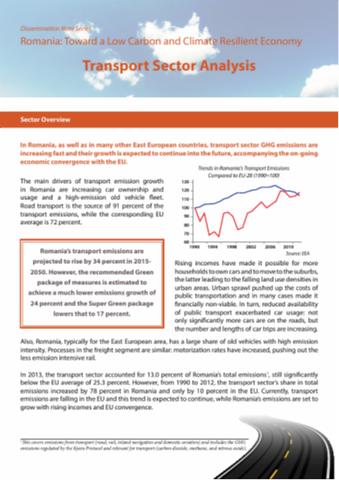The World Bank is a vital source of financial and technical assistance to developing countries around the world. We are not a bank in the ordinary sense but a unique partnership to reduce poverty and support development. The World Bank Group has two ambitious goals: End extreme poverty within a generation and boost shared prosperity.
- To end extreme poverty, the Bank's goal is to decrease the percentage of people living on less than $1.25 a day to no more than 3% by 2030.
- To promote shared prosperity, the goal is to promote income growth of the bottom 40% of the population in each country.
The World Bank Group comprises five institutions managed by their member countries.
The World Bank Group and Land: Working to protect the rights of existing land users and to help secure benefits for smallholder farmers
The World Bank (IBRD and IDA) interacts primarily with governments to increase agricultural productivity, strengthen land tenure policies and improve land governance. More than 90% of the World Bank’s agriculture portfolio focuses on the productivity and access to markets by small holder farmers. Ten percent of our projects focus on the governance of land tenure.
Similarly, investments by the International Finance Corporation (IFC), the World Bank Group’s private sector arm, including those in larger scale enterprises, overwhelmingly support smallholder farmers through improved access to finance, inputs and markets, and as direct suppliers. IFC invests in environmentally and socially sustainable private enterprises in all parts of the value chain (inputs such as irrigation and fertilizers, primary production, processing, transport and storage, traders, and risk management facilities including weather/crop insurance, warehouse financing, etc
For more information, visit the World Bank Group and land and food security (https://www.worldbank.org/en/topic/agriculture/brief/land-and-food-security1
Resources
Displaying 591 - 595 of 4907Toward a More Business Friendly Tax Regime
This paper discusses
competitiveness-related issues surrounding the design and
administration of corporate and value added/sales taxes in
four South Asian countries -- Bangladesh, India, Pakistan,
and Sri Lanka. The paper is based largely on analysis of tax
legislation; in addition, data from the World Banks
enterprise surveys, the Doing Business report, as well as
industry studies are used for evidence on tax compliance
Hub-Periphery Development Pattern and Inclusive Growth
The hub-periphery development pattern of
the Guangdong economy, to some extent, is a miniature of
that of the Chinese economy. The Pearl River Delta, drawing
from its first-nature comparative advantages in factor
endowments and proximity to Hong Kong SAR, China, and Macau
SAR, China, and the second-nature advantages as first-movers
in the reforms in attracting and retaining domestic and
foreign resources, has developed into a regional economic
Romania Toward a Low Carbon and Climate Resilient Economy
In Romania, as well as in many other East European countries, transport sector Green House Gas (GHG) emissions are increasing fast and their growth is expected to continue into the future, accompanying the on-going economic convergence with the European Union (EU). The objective of the analysis was to assess the impact of green policies and investments on transport emissions. For this purpose, the Romania Transport Strategic Emission Prediction Tool (TRANSEPT) was developed.
Regionalism in Services
Can regionalism do what multilateralism
has so far failed to do—promote greater openness of services
markets? Although previous research has pointed to the wider
and deeper legal commitments under regional agreements as
proof that it can, no previous study has assessed the impact
of such agreements on applied policies. This paper focuses
on the Association of Southeast Asian Nations (ASEAN), where
regional integration of services markets has been linked to
Responses to Weather and Climate
How much do poor rural households rely
on environmental extraction from natural ecosystems? And how
does climate variability impact their livelihoods? This
paper sheds light on these two questions with household
income data from the Poverty and Environment Network
pantropical data set, combined with climate data for the
past three decades. The study finds that extraction of wild
resources (from natural forests, bushlands, fallows, etc.)







